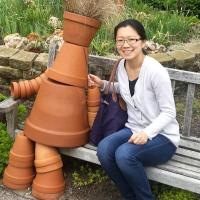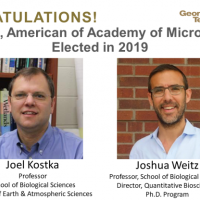News

In a future where self-driving and other internet-connected cars share the roads with the rest of us, hackers could not only wreck the occasional vehicle but possibly compound attacks to gridlock whole cities by stalling out a limited…
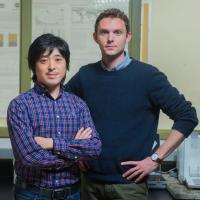
Evidence exists for oxygen-releasing photosynthesis evolving as early as 3 billion years ago. However, the oxygen-rich atmosphere we take for granted today has existed for only about 10% of Earth’s 4.5-billion-year history. Why did oxygenation of…

A new study has found that variability in night-to-night sleep time and reduced sleep quality adversely affect the ability of older adults to recall information about past events. The study also found unexpected racial differences in the type of…

Some animals that can’t manufacture their own chemical weapons feed on toxic organisms and steal their chemical defenses, having evolved resistance to them. One animal that does this is a sea slug that lives on the reefs surrounding Hawaii and…

Scientists may need to rethink their estimates for how many planets outside our solar system could host a rich diversity of life in light of the discovery that a buildup of toxic gases in the atmospheres of most planets makes them unfit for…
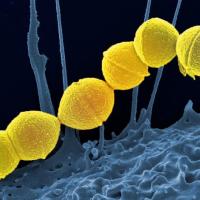
Those same antibiotics driving antibiotic resistance could also help defeat it if used with the right strategy. Making it work would require companion health strategies like staying home from work when…

Ever since she could remember, Elma Kajtaz has been fascinated by the nervous system, its mechanics, and how these mechanics help determine an organism’s behavior.

Georgia Tech has named William Ratcliff and Peter Yunker as recipients of the 2019 Sigma Xi Faculty Best Paper Award.…

Joseph “Joe” Lachance is one of three College of Sciences junior faculty to win Georgia Tech’s 2019 CTL/BP Junior…

A collaboration between Georgia Tech and the Max Planck Institute of Neurobiology has received a grant of $750,000 over three years from the…

A Georgia Tech team that includes School of Physics' Dan Goldman has been awarded $6.25 million by the Department of Defense (DoD) to use collective emergent behavior to achieve task-oriented objectives.
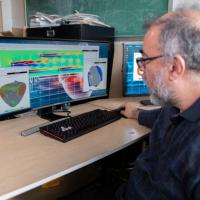
Modeling the complex electrical waves that cause heart arrhythmias could provide the key to understanding and treating a major cause of death in the world. Until now, however, real-time modeling of those deadly waveforms within millions of…

Researchers from the University of California, Riverside, and Georgia Tech suggest that celestial carbon monoxide detectors may alert us to distant worlds teeming with simple life forms.

Desert snakes slithering across the sand at night can encounter obstacles such as plants or twigs that alter the direction of their travel -- and cause them to mimic aspects of light or subatomic particles when they encounter a diffraction…

Relationships based on “you scratch my back and I’ll scratch yours” are everywhere in the biological world. The recently established Center for the Origin of Life (COOL) will harness these mutualisms to…

Conventional wisdom says complex structures should be harder to assemble than simple ones. Their assembly requires more information and presents more opportunities to make mistakes. But in nature, complex assemblies and higher error rates do not…

Here's a science enigma: Try to explain where the neat, even DNA/RNA helix came from. That actually might be easy. The helix probably spun around itself with complete ease long before first life evolved, as this possible RNA precursor did in…
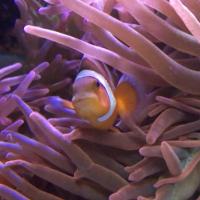
The fish killer and the fish live in perfect harmony: But how the clownfish thrives in the venomous tentacles of the anemone remains a mystery. A new study tackles the iconic conundrum from the microbial side by watching bacterial colonies shift…

